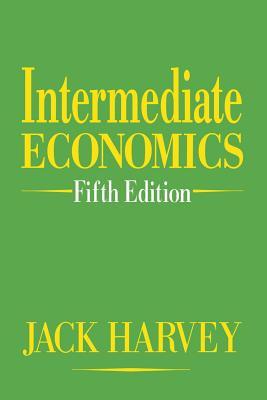

 |

|

The average rating for An Introductory Economics: Workbk based on 2 reviews is 2.5 stars.
Review # 1 was written on 2017-08-24 00:00:00 Bridget Lynn Bridget LynnEconomics is one subject that causes me perpetual unease. Everybody cares about the economy, of course, and everybody argues about how it should be structured and managed. Imposing terminology is thrown around, graphs and statistics are wheeled out, and yet the situation always seems quite unclear to me. So I was pleased when Timothy Taylor framed his lectures, not as the gospel truth of economics, but as an introduction to the language of economics. Learning this language is essential if you would like to take part in this endless societal argument. Considering the restraints of time and of format, I think that Taylor deserves praise for these lectures. In 18 hours, he manages to cover all of the major topics of micro- and macro-economics—supply and demand, price curves, government regulation, fiscal policy, etc.—in an accessible but not overly simplistic style. Further, Taylor is an engaging speaker whose enthusiasm for a potentially dreary subject helps to alleviate the dryness. Someone has got to get excited about interest rates, I suppose. A major shortcoming of these lectures is that they were recorded in 2005, just before the enormous financial crash. Surely, a new edition is called for. Considering how much time has passed, however, I think that these lectures have held up remarkably well. For the most part, the major disagreements and issues in economics do not seem to have changed very much. Everything is here—healthcare costs, financial crashes, trade wars, deficits—which is probably not a reason to celebrate. If Taylor can be criticized, I think it should be for inserting too many of his own views into these lectures. Some degree of editorializing is inevitable in any academic course, I think. But Taylor is quite an opinionated guide, and never hesitates to advocate for his pet policies. Admittedly this did make the lectures more interesting; but it also undermined Taylor’s insistence that economics is merely a way of thinking rather than a specific doctrine. To the contrary, these lectures contain very specific presumptions about and prescriptions for a successful society (hint: it is all about a free market). Speaking more generally, it is frustrating for me the degree to which the social sciences inhabit parallel worlds. Not only do anthropology, psychology, and economics study different sorts of phenomena, but they make very different assumptions about human behavior—which often contradict one another. I was acutely aware of this while listening to these lectures, since I was concurrently reading psychologist Daniel Kahneman’s Thinking, Fast and Slow, which argues that the rational agent model of economic actors is fundamentally flawed. Meanwhile, my brother is reading anthropologist David Graebner’s book about the many different (not capitalist) forms that economic activity has taken throughout time and across space. Compared to psychology and anthropology, economics can seem worrisomely abstract to me—too content to rest its conclusions on untested assumptions and a priori principles. In these lectures, for example, I would have appreciated more case studies of historical examples in lieu of theoretical explanations. This would have illustrated the concepts’ usefulness far more effectively, I think. But I am drifting off topic. As a painless introduction to economics, these lectures do an admirable job. It is a fascinating discipline with much to teach us. I am glad to have a break for now, though. A dismal science indeed. |
Review # 2 was written on 2019-03-10 00:00:00 Vijeshwariee Yoganathan Vijeshwariee YoganathanThis is a 36 half-an-hour parts lectures on Economics by Timothy Taylor, covering the basics like supply and demand, labor marker and wages, and regulation to more subtle subjects like countercyclical fiscal policy, monetary policy, financial crushes, etc. This course is especially suitable for those who don't take an economics course in college, but want to acquire a basic understanding of the subject. I found economics torturing and boring in high school because the lessons were dull and there were no explanation besides reading textbooks. So, it left a terrible impression on me, and I had been avoiding it since then. But due to curiosity, I watched Crush Course Economics on YouTube, and it wasn't as boring as I thought it would be, and after finishing watching that course, I tried to find something a bit more detailed to fill the gaps, and this course did just that. |
CAN'T FIND WHAT YOU'RE LOOKING FOR? CLICK HERE!!!